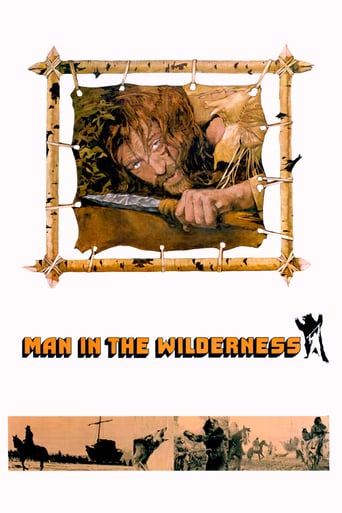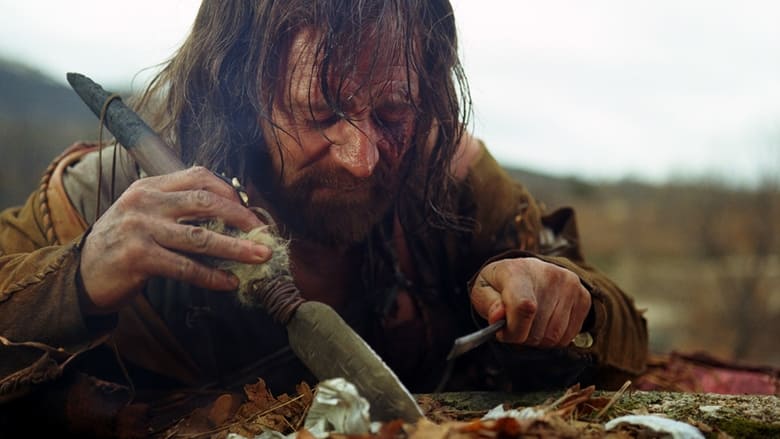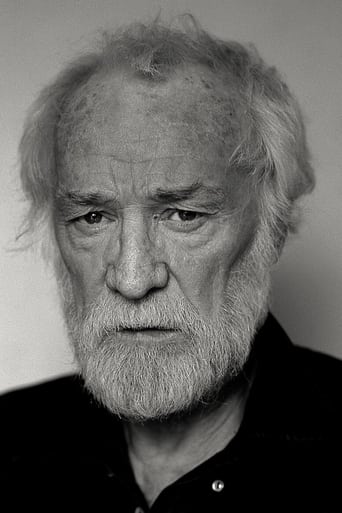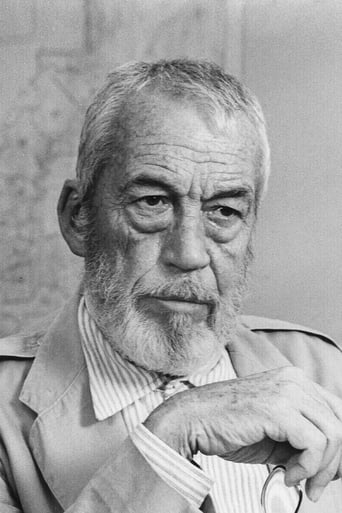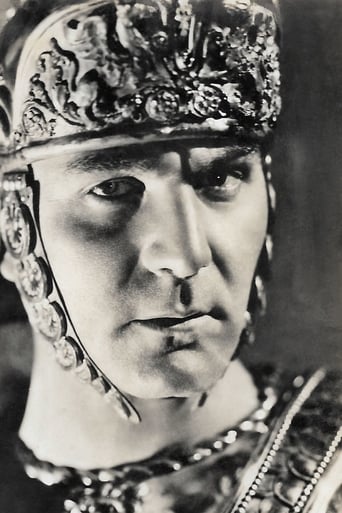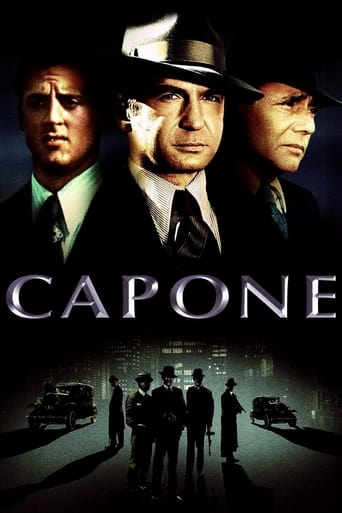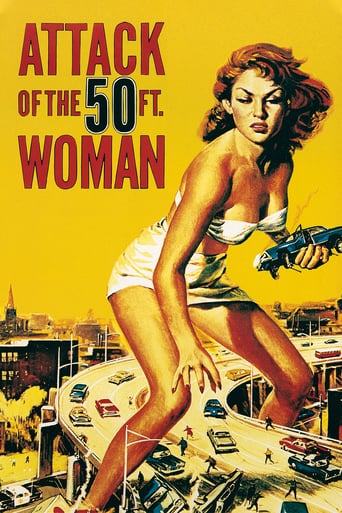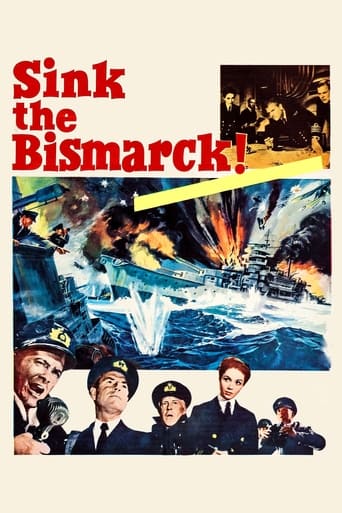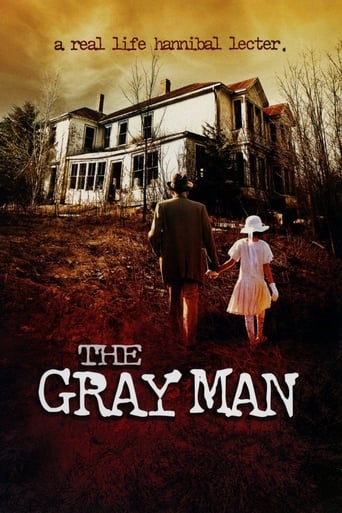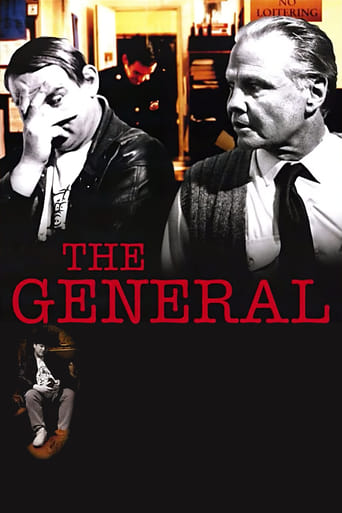Man in the Wilderness (1971)
In the early 1800s, a group of fur trappers and Indian traders are returning with their goods to civilization and are making a desperate attempt to beat the oncoming winter. When guide Zachary Bass is injured in a bear attack, they decide he's a goner and leave him behind to die. When he recovers instead, he swears revenge on them and tracks them and their paranoiac expedition leader down.
Watch Trailer
Cast


Similar titles
Reviews
The directing of this film was outstanding in it's ability to portray the extreme hardships of woodsman of the 1800's. Beautiful scenery in this movie offers a perfect setting to a palpable story of courage and resilience in the unforgiving world of a Western fur trapper. The courage and compassion that Zach Bass (Richard Harris) embodied as he struggled to survive a credible and graphic vicious bear attack, made this main character admirable in his will to survive. The scene of him speaking to his yet to be born child, still carried by his loving wife, showed a deep sensitivity within this character that balanced his tough exterior. The Native American portrayals showed intelligence in that it gave a very respectable human face to a deeply spiritual Nation. It is a remarkable cinematic achievement at all levels and should be recognized as such.
Man in the Wilderness is directed by Richard C. Sarafian and written by Jack DeWitt. It stars Richard Harris, John Huston, Prunella Ransome, Percy Herbert, Henry Wilcoxon, Norman Rossington and Dennis Waterman. Music is by Johnny Harris and cinematography by Gerry Fisher."1820. The Captain Henry Expedition has completed two years of fur trapping in the unexplored Northwest territory. Determined to reach the Missouri River before the winter snows, the trappers and their boat, towed by 22 mules, struggled through the wilderness. Once on the Missouri they could sail south to the trading posts and sell their precious cargo. What occurred on this expedition is historically true."He was left for dead. He would not forget. Essentially, Man in the Wilderness is the redemptive tale of Zachary Bass (Harris). Left for dead by his unfeeling Captain (Huston) after being savaged by a grizzly bear, Bass survives the wilds of nature and the threat of man with revenge firmly on his mind. But as he recuperates and adjusts to the spiritualisation that the surrounds brings him, he looks back at his life and beliefs.It is undeniably a very slow picture, with dialogue appropriately in short supply, but the atmosphere created is perfect for the unfolding events. Strikingly the film also has a surreal quality that really cloaks the story with considerable impact, where deft touches of imagery land firmly in the conscious. The makers slot in some "bloody" moments, backed with tension, such as the well constructed sequences involving the bear attack and a time when Bass has to scare away two snarling wolves so he "also" can feast off of a stricken Bison. The presence of Indian attacks is handled with care by the director, and in fact helps the finale get away with the expected outcome. While strong moments such as two separate incidents involving rabbits really show the makers to have the best of intentions to tell a valid and interesting story. Especially when it's scenes of just Bass and nature at war.Narratively, however, it is a bit hit and miss. The pertinent question of faith and the use of flashbacks are an uneasy alliance, mostly because the former drapes the film in predictability, and the latter takes you out of the whole "man in the wilderness" struggle that Bass is luring us into. It renders the film far from flawless which is a shame because it has much to recommend a viewing. The Almería, Andalucía location is used to good effect to pass as the Northwest of America, where quite often Gerry Fisher's photography neatly shifts between beauty and the harshness of mother nature. Harris could do this type of role in his sleep, he isn't asked to stretch himself but still leaves a very favourable impression. Huston is up to scratch, but again he doesn't have to do much, while everybody else are giving performances that any other working actor of the time could have given.A movie of rewards and frustrations for sure, and it's no Jeremiah Johnson, but this is definitely worth a spin for anyone interested in the "Man Vs Nature" sub-genre of period films. 7/10
Richard Harris is horribly mauled by a grizzly bear and left to die in the primeval forest of 1820's America, by trapping expedition captain John Huston. The injured Harris is forced to go to extraordinary lengths in order to survive and catch up with the rest of his party.A very offbeat, handsomely produced outdoor adventure, Man In The Wilderness is a story that's told primarily in pictures, with very minimal dialog. This moody, sometimes cerebral film might not be for everyone, though others will find it quite satisfying.Richard Harris delivers a great performance, despite the fact that the script only allows him to speak five times during the movie, three of which were near the end. He's forced to convey emotions mainly through body and facial expression.Some favorite scenes are when the trappers are pinned down by the weather and begin to imagine a vengeful Harris, coming out of the wilderness to get them, and of course the fascinating climax and finale.The film's basic premise was borrowed four years later, in the bad drive-in movie Apache Blood. That film is not recommended, whereas this would make a pretty good double-bill with A Man Called Horse or Jeremiah Johnson.
Far from the arid deserts and dry arroyos of Arizona and Texas, the goldfields of California and the rowdy cattle towns of Kansas and Missouri, before the Mexican or the Civil War, indeed before the frontier myths that shaped America's collective consciousness into a coherent nation were even tall tales told around a fire at night or spectacles to be toured around the country by wild west shows, the war for another kind of America was being fought. Loosely based on the 1818-20 Missouri Expedition, director Richard Sarafian, the very same year he carved on the face of cinema the name Kowalski and the beautiful sight of a Dodge Challenger R/T tearing through empty stretches of asphalt with the indomitable VANISHING POINT, created another kind of western.A stark gritty survival story that veers between the vividly realistic and the dreamlike, between a plot and no plot, between the story of a man coming to terms with his past in a journey of self-discovery revenge and redemption and the Sissyphian story of a ragged band of half-crazed mountain men towing against all hope a large boat borne on wheels through the mudfields of the Oregon Territory, if anything, MAN IN THE WILDERNESS cannot be accused for not trying to succeed on its own terms. At the beginning of the film the expedition's scout, Zachary Bass (Richard Harris), is mauled half to death by a bear. The leader of the party, Captain Henry (John Huston) leaves him to die and pushes on towards the Missouri River, pressed on by the bands of Indians that roam the territory.From this dichotomy the story moves in two different directions. On one hand we see Zachary Bass make a terrible painful recovery from near-death, having to fight wild dogs for the raw meat of a dead buffalo, building fires against the coming cold with twigs and branches, laying traps for food, traversing the rocky terrain in pursuit of the men who abandonded him, witnessing on his way scenes both of random violence and unexpected joy, his anguished return from the dead interspersed with flashbacks to his childhood. On the other hand Captain Henry, the stark realist, the grizzly pioneer dressed in his doublebreasted jacket and high-top hat, the monomaniac navigator of uncharted lands, standing rigid and steadfast on the deck of his boat like some other Captain Ahab, toiling away in the mad voyage he elected for himself, not even knowing yet he's carrying his boat to a dry riverbed, being haunted by guilt and remorse for the man he left behind.If the imagery of a boat filled with poetic metaphor towed through a stark hostile landscape reminds us of something Werner Herzog once did, it must be said that Sarafian was there years before either AGUIRRE or FITZCARRALDO and one year before Sydney Pollack would tackle similar motifs with the frontier western of JEREMIAH JOHNSON. The themes that resound through the movie, men set against a savage land that bears them false witness, the confidence of the director to avoid explanatory narrations and rely on minimal dialogue, the beautiful open vistas (the movie was shot in Andalucia, Spain - not far from where Sergio Leone made filmic history), the iconic monomaniac antagonist played by the great John Huston (not quite the despicable Noah Cross he played for Polanski's CHINATOWN three years later, more human this time, with the capacity for surprise and defeat), the violent final battle that has enough mud and grime to make the closing battle in SEVEN SAMURAI look polished - everything comes together to paint MAN IN THE WILDERNESS as another sadly overlooked gem of American cinema. My only complaint, apart perhaps for the lack of a better score, is that Sarafian didn't probe 'enough' the depths of his story and the world it takes place in. Given the characters, setting and story, there's an even better movie lurking somewhere in there...

